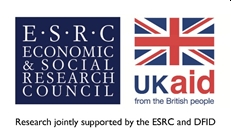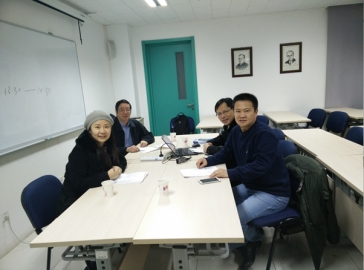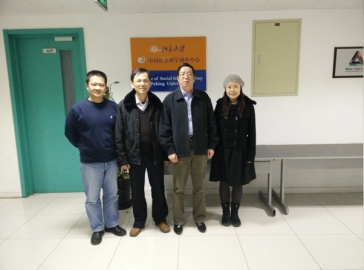ESRC- DFID Project (2014-2017) - Impact of urban-rural return migration on rural development in China-with implications for Vietnam

Migration is an essential element in the livelihoods of households in Least Developed Countries as a diversification strategy. However, the poorest families at origins are left out and failed to benefit from it as migration remains a selected process. Despite China's economic achievement over the past 30 years, poverty still persists, especially in remote rural China. Urban-rural return migrants who are equipped with accumulated human, financial, and social capital through their migration experiences are capable of acting as agents of change to reduce rural-urban disparities, facilitate rural economic development and help rural poor to exit poverty.
This research will investigate impact of urban-rural return migration on rural economic development in China and how results are transferable to China’s neighbouring country Vietnam. It will investigate ways that returnees contribute to local rural economy, their decision-making process, and key institutions and policies affecting their entrepreneurial activities. Variations between groups, across time and places will also be examined using a retrospective longitudinal multi-level approach.
Specific objectives include:
- Investigate the spatial patterns of return migration and how they have changed over the past 10 years and their associations with place (province/city/county) characteristics;
- Examine longitudinally return migrants’ economic impacts through local job creation, financial and technology investment, market connection, and economy diversification and how they vary between groups and across places;
- Identify key individual, socioeconomic, institutional and policy and other local factors in affecting returnees’ entrepreneurial decision and activities;
- Evaluate longitudinally the extent and ways that non-migrants, villages and local townships benefit from return migration and how institutions and policies affect the processes
- Analyze determinants in migrants’ return decision-making processes and the linkages to their post return economic performance.
The empirical findings will enrich our understanding on conditions and institutional context that stimulate rural development and help the rural poor exit poverty. It provides great implications for policy makers in China on how to effectively incorporate return migration and foster returnees' entrepreneurial activities in its strategic guidance for rural development and reducing rural-urban disparities.
In a global context, the results will have wider relevance for other developing nations such as Vietnam, which is replicating China's development model successfully and also facing similar issues in rural deprivation and rising rural-urban disparities. Various engagements and activities are proposed to ensure the transfer of the project results to Vietnam.
Both quantitative and qualitative methods will be used to enhance the robustness and completeness of the research results. A primary data set will be created suitable for multilevel modelling through complex and innovative research design techniques and sampling methods. The datasets will be fully documented and deposited at the UK Data Archive for further exploration.
The project is led by University of Bristol with collaboration from Chinese University of Hong Kong, Peking University and Fujian Normal University.







